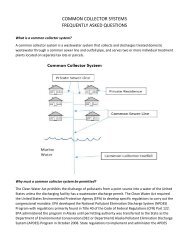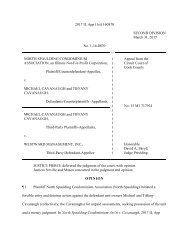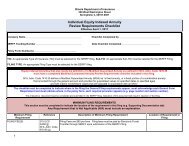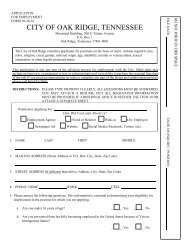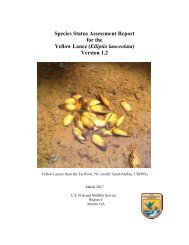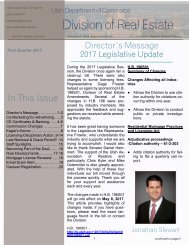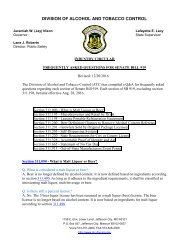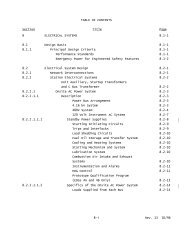timesharing
ProposedAmendments_FCRPP
ProposedAmendments_FCRPP
Create successful ePaper yourself
Turn your PDF publications into a flip-book with our unique Google optimized e-Paper software.
(2) A parent or custodian may move for, or the court may order, one or more of the<br />
following, which may be apportioned at the expense of the parents or custodians:<br />
(a) A custody evaluation;<br />
(b) Psychological evaluation(s) of a parent or parents or custodians, or child(ren);<br />
(c) Family counseling;<br />
(d) Mediation;<br />
(e) Appointment of a guardian ad litem;<br />
(f) Appointment of a friend of the court or de facto friend of the court;<br />
[(f)](g) Appointment of such other professional(s) for opinions or advice which the court<br />
deems appropriate; or,<br />
[(g)](h) Such other action deemed appropriate by the court.<br />
(3) The court or domestic relations commissioner shall conduct a hearing on any motion<br />
for temporary custody, time sharing, visitation or child support, within 60 days of the<br />
filing of the motion except for good cause stated on the record. Nothing herein prevents<br />
the parties from entering into an agreement on these issues.<br />
(4) In all proceedings for the dissolution of marriage in which children of the marriage<br />
are minors, or in any custody proceedings, the court may order the parents or<br />
custodians and children to participate in counseling or divorce education on a case-bycase<br />
basis, which shall be at the expense of the parties.<br />
OFFICIAL COMMENTARY:<br />
Particular attention should be paid to the distinction between a guardian ad litem<br />
appointed pursuant to subsection (2)(e) and a friend of the court appointed pursuant to<br />
subsection (2)(f). A guardian ad litem is an attorney advocating for the best interest of<br />
the child and should be appointed with that role in mind. Morgan v. Getter, 441 S.W.3d<br />
94 (Ky. 2014). “The GAL should not file reports, testify, make recommendations, or<br />
otherwise put his own or her own credibility at issue.” Id. at 114. By contrast, a friend of<br />
the court or de facto friend of the court is an investigator who advises the court. He or<br />
she may make recommendations and file reports, and he or she is subject to crossexamination<br />
by the parties’ counsel. Use of the AOC form orders of appointment is<br />
required to avoid conflating these two roles and to provide clarity to appointed persons,<br />
counsel, and parties.<br />
9



